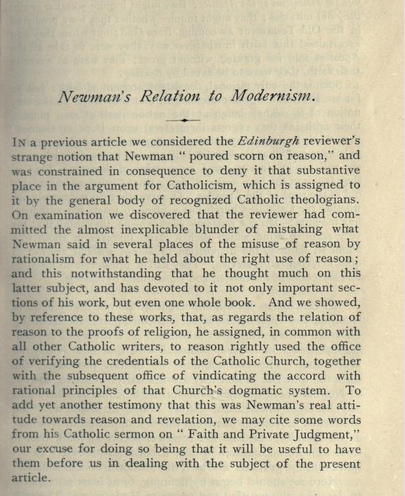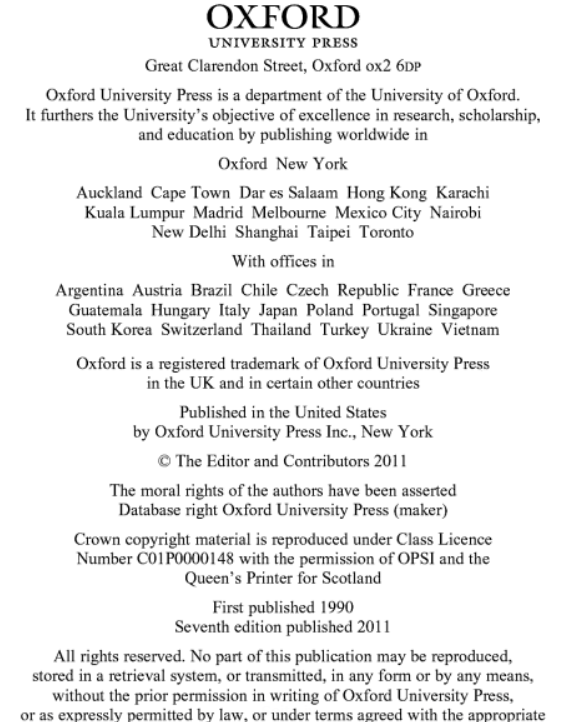Join GitHub today
GitHub is home to over 36 million developers working together to host and review code, manage projects, and build software together.
Sign upFixes and Updates - O #1214
Conversation
zuphilip
added some commits
Jan 3, 2017
adam3smith
reviewed
Jan 6, 2017
| "creators": [], | ||
| "notes": [], | ||
| "extra": "Reference Number: t16780828-12", |
This comment has been minimized.
This comment has been minimized.
This comment has been minimized.
This comment has been minimized.
zuphilip
Jan 6, 2017
Author
Collaborator
It seems that this id consists of a letter t, the date 16780828=1678-08-28 and a counter -12. It is written that the reference number is
a unique reference number, which can be used to search for the trial subsequently and should be used when citing the trial in any written work
Thus, it looks that this may fit into docketNumber where there are some changes that it is used in citations as suggested. Also it is nothing original but a number given by this database. I will then change this...
adam3smith
reviewed
Jan 6, 2017
| @@ -494,7 +495,7 @@ var testCases = [ | |||
| "items": [ | |||
| { | |||
| "itemType": "book", | |||
| "title": "Newman's relation to modernism", | |||
| "title": "Newman's relation to modernism.", | |||
This comment has been minimized.
This comment has been minimized.
This comment has been minimized.
This comment has been minimized.
zuphilip
Jan 6, 2017
Author
Collaborator
The period is on the WorldCat website and in their RIS export. The point is originally written in the title of the book:
Should we still want to change that?
This comment has been minimized.
This comment has been minimized.
adam3smith
Jan 7, 2017
Collaborator
odd, but right, if it's actually in the title, it makes sense to keep it.
adam3smith
reviewed
Jan 6, 2017
| @@ -333,15 +288,15 @@ var testCases = [ | |||
| } | |||
| ], | |||
| "date": "2016/06/23", | |||
| "abstractNote": "This study deals with the question of genre cinema in terms of an aesthetic experience that also accounts for a shared experience. The focus will be on the historical framework that constituted the emotional mobilization of the American public during World War II when newsreels and fictional war films were screened together as part of the staple program in movie theaters. Drawing on existing concepts of cinema and public sphere as well as on a phenomenological theory of spectator engagement this study sets out to propose a definition of the term moviegoing experience. On these grounds a historiographical account of the institutional practice of staple programming shall be explored together with a theoretical conceptualization of the spectator within in the realm of genre cinema.Diese Studie befragt das Genrekino als Modus ästhetischer Erfahrung in Hinblick auf die konkrete geteilten Erfahrung des Kinosaals. Der Fokus liegt auf den historischen Rahmenbedingen der emotionalen Mobilisierung der US-amerikanischen Öffentlichkeit während des Zweiten Weltkriegs und der gemeinsamen Vorführung von Kriegsnachrichten und fiktionalen Kriegsfilmen in Kinoprogrammen. Dabei wird auf Konzepte des Kinos als öffentlichem Raum und auf phänomenologische Theorien der Zuschaueradressierung Bezug genommen und ein integrative Definition der moviegoing experience entworfen. Dadurch ist es möglich, historiographische Schilderungen der institutionalisierten Praktiken der Kinoprogrammierung mit theoretischen Konzeptualisierungen der Zuschauererfahrung und des Genrekinos ins Verhältnis zu setzen.David Gaertner, M.A. is currently writing his dissertation on the cinematic experience of World War II and is a lecturer at the division of Film Studies at Freie Universität Berlin. From 2011 to 2014 he was research associate in the project “Staging images of war as a mediated experience of community“. He is co-editor of the book “Mobilisierung der Sinne. Der Hollywood-Kriegsfilm zwischen Genrekino und Historie” (Berlin 2013). // David Gaertner, M.A. arbeitet an einer Dissertation zur Kinoerfahrung im Zweiten Weltkrieg und lehrt am Seminar für Filmwissenschaft an der Freien Universität Berlin. 2011 bis 2014 war er wissenschaftlicher Mitarbeiter im DFG-Projekt „Inszenierungen des Bildes vom Krieg als Medialität des Gemeinschaftserlebens“. Er ist Mitherausgeber des Sammelbands “Mobilisierung der Sinne. Der Hollywood-Kriegsfilm zwischen Genrekino und Historie” (Berlin 2013).", | |||
| "abstractNote": "to the article / zum BeitragThis study deals with the question of genre cinema in terms of an aesthetic experience that also accounts for a shared experience. The focus will be on the historical framework that constituted the emotional mobilization of the American public during World War II when newsreels and fictional war films were screened together as part of the staple program in movie theaters. Drawing on existing concepts of cinema and public sphere as well as on a phenomenological theory of spectator engagement this study sets out to propose a definition of the term moviegoing experience. On these grounds a historiographical account of the institutional practice of staple programming shall be explored together with a theoretical conceptualization of the spectator within in the realm of genre cinema.Diese Studie befragt das Genrekino als Modus ästhetischer Erfahrung in Hinblick auf die konkrete geteilten Erfahrung des Kinosaals. Der Fokus liegt auf den historischen Rahmenbedingen der emotionalen Mobilisierung der US-amerikanischen Öffentlichkeit während des Zweiten Weltkriegs und der gemeinsamen Vorführung von Kriegsnachrichten und fiktionalen Kriegsfilmen in Kinoprogrammen. Dabei wird auf Konzepte des Kinos als öffentlichem Raum und auf phänomenologische Theorien der Zuschaueradressierung Bezug genommen und ein integrative Definition der moviegoing experience entworfen. Dadurch ist es möglich, historiographische Schilderungen der institutionalisierten Praktiken der Kinoprogrammierung mit theoretischen Konzeptualisierungen der Zuschauererfahrung und des Genrekinos ins Verhältnis zu setzen.David Gaertner, M.A. is currently writing his dissertation on the cinematic experience of World War II and is a lecturer at the division of Film Studies at Freie Universität Berlin. From 2011 to 2014 he was research associate in the project “Staging images of war as a mediated experience of community“. He is co-editor of the book “Mobilisierung der Sinne. Der Hollywood-Kriegsfilm zwischen Genrekino und Historie” (Berlin 2013). // David Gaertner, M.A. arbeitet an einer Dissertation zur Kinoerfahrung im Zweiten Weltkrieg und lehrt am Seminar für Filmwissenschaft an der Freien Universität Berlin. 2011 bis 2014 war er wissenschaftlicher Mitarbeiter im DFG-Projekt „Inszenierungen des Bildes vom Krieg als Medialität des Gemeinschaftserlebens“. Er ist Mitherausgeber des Sammelbands “Mobilisierung der Sinne. Der Hollywood-Kriegsfilm zwischen Genrekino und Historie” (Berlin 2013).", | |||
This comment has been minimized.
This comment has been minimized.
adam3smith
Jan 6, 2017
Collaborator
we're scraping this from the page? Maybe worth checking if we can do better still with the xpath?
This comment has been minimized.
This comment has been minimized.
This comment has been minimized.
This comment has been minimized.
adam3smith
Jan 8, 2017
Collaborator
Not much we can do on our side here.
agreed. Thanks for checking.
This comment has been minimized.
This comment has been minimized.
adam3smith
reviewed
Jan 6, 2017
| "Flute", | ||
| "Music", | ||
| "Woodwind & Brass" | ||
| "publisher": "Oxford University Press", |
This comment has been minimized.
This comment has been minimized.
adam3smith
Jan 6, 2017
Collaborator
do you know if we could also add a place here or do those differ for OUP?
This comment has been minimized.
This comment has been minimized.
zuphilip
Jan 6, 2017
Author
Collaborator
Well, normally I think that the place of publication is a strange (antique) metadata field and I am not sure what the purpose is nowadays. However, it is a widely used field in citation styles, thus it might be a user-friendly idea to give some info when possible.
- If the place of publication should be derived somehow from the book, then this value might change slightly and there are also some variations in bibliographic entries in library catalogues. Thus, it wouldn't be always correct to save a fixed value here.
- We can see the place of publication as an additional info to the publisher, which might useful to distinguish or specify several publisher's with the same name or give some context. Then, I guess it is save to add one general value like "Oxford".
- The production (typesetting etc.) is sometimes stated to be in India.
- I doubt that for distribution, sales the place of publication is important to know nowadays...
- The place of publication (especially the country) might matter in some legal affairs.
- The country code in the ISBN is AFAIS always
0which stands for the UK and US and other English speaking regions.
Possible values I have seen:
- Oxford
- Oxford, New York
- Oxford and others
But this could be much more detailed (e.g. published in US, printed in UK, and typesetted in India):
This comment has been minimized.
This comment has been minimized.
adam3smith
Jan 7, 2017
Collaborator
Obviously no argument on the timeliness of citing publisher places, but as you say -- as long as it's widely required, we should provide the metadata. In my experience Oxford, New York is the most appropriate -- I'm seeing this most often and it corresponds to those two top listed cities (not arguing with any of your other comments, I'm just being pragmatic). If you're OK with that, would you put it in?
This comment has been minimized.
This comment has been minimized.
This comment has been minimized.
This comment has been minimized.
|
Hi -- a couple of comments in line -- sorry, should have done them in review mode. I thought I had only one or two. |
zuphilip
added some commits
Jan 8, 2017
This comment has been minimized.
This comment has been minimized.
|
Please have a look at the new version, which should deal with all your comments (nothing I see we can do about OJS, see comment above). |
adam3smith
reviewed
Jan 8, 2017
| j++; | ||
| label = label.replace(/\s+/g, ''); | ||
| if (label == "ReferenceNumber:") { | ||
| var startValue = text.indexOf(":"); |
This comment has been minimized.
This comment has been minimized.
This comment has been minimized.
This comment has been minimized.
zuphilip
Jan 8, 2017
Author
Collaborator
Ui, that was sloppy from me. Sorry! Fixed in the newest commit.
 adam3smith
merged commit
adam3smith
merged commit cfc4291
into
zotero:master
Jan 8, 2017
This comment has been minimized.
This comment has been minimized.
|
Great, thanks! |




zuphilip commentedJan 4, 2017
No description provided.